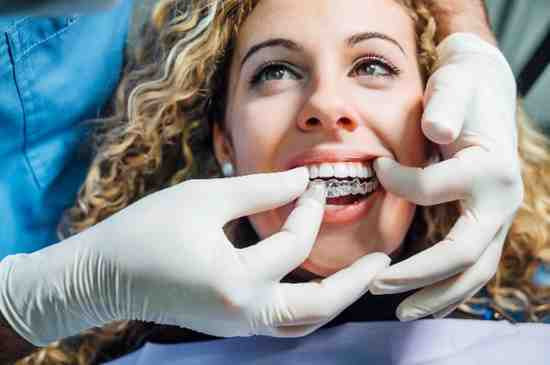Managing diabetes requires attention to your overall health, and that includes your mouth. While it's easy to focus solely on blood sugar levels, your gums, teeth, and overall oral health also need regular care. Ignoring this connection may lead to complications that are entirely preventable with the right knowledge and support.
The Relationship Between Diabetes and Oral Health
When we talk about diabetes, we often think about how it affects your blood sugar levels, eyesight, or kidneys. However, diabetes can also take a toll on your oral health. High blood glucose levels can weaken your mouth's natural defences, leading to a range of dental concerns.
Gum Disease and Inflammation
People with diabetes are more likely to develop gum disease (periodontitis) because high blood sugar weakens the immune system and slows healing.
Those considering dental implants Caerphilly are often checked for signs of gum disease, as it's a key factor in implant success. Red, swollen, or bleeding gums should never be ignored, especially if you're diabetic.
Dry Mouth and Reduced Saliva
Increased blood sugar can reduce saliva production, leading to a dry mouth (xerostomia). This creates a perfect environment for bacteria to thrive, raising the risk of cavities and infections. Individuals undergoing invisalign Caerphilly treatment may find dry mouth a common side effect, which can worsen with uncontrolled diabetes.
Oral Thrush
High glucose levels in saliva encourage the growth of Candida albicans, a fungus that causes thrush. Symptoms include white patches on the tongue and cheeks, soreness, and a burning sensation. Dentists often notice these signs during regular check-ups, particularly in patients with diabetes.
How Dental Treatments Fit into Diabetic Care
Importance of Preventive Dentistry
If you have diabetes, visiting the dentist regularly is essential. Preventive care can identify problems early, reduce your risk of severe complications, and ensure your overall well-being.
Regular check-ups are particularly valuable for patients opting for invisalign Caerphilly treatment, where dental reviews are already part of the process. Dentists can spot subtle changes in your oral health that may indicate worsening diabetes control.
Managing Dental Implants with Diabetes
For patients seeking dental implants Caerphilly well-controlled diabetes is crucial. High blood sugar can affect bone healing and increase the risk of implant failure. This doesn’t mean implants aren’t an option but your dentist will likely coordinate care with your GP or diabetes nurse.
Warning Signs Not to Ignore
Paying attention to your mouth can be just as important as monitoring your glucose levels. Here are some common oral health red flags to watch for:
- Persistent bad breath
- Sore or bleeding gums
- Loose teeth
- White patches on the tongue or inner cheeks
- Pain when chewing
If you notice these symptoms especially while undergoing invisalign Caerphilly treatment or preparing for implants it’s time to speak to your dentist.
How to Maintain Healthy Teeth and Gums with Diabetes
Diabetes management and oral hygiene go hand-in-hand. Here are simple yet effective ways to reduce your risk:
- Brush twice daily using fluoride toothpaste: Brushing twice a day with fluoride toothpaste helps remove plaque and strengthens enamel. Fluoride is especially useful for people with diabetes, as it can reduce the risk of decay. Use a soft-bristled brush and gentle circular motions for best results.
- Floss or use interdental brushes every day: Cleaning between your teeth helps remove food particles and plaque that brushing alone can't reach. This prevents gum inflammation and lowers your risk of infections. For those with sensitive gums, interdental brushes may be more comfortable than floss.
- Keep blood sugar under control with guidance from your GP: Maintaining stable blood glucose levels supports your immune system and speeds up healing. Poor sugar control can worsen gum disease and slow recovery after dental procedures. Work closely with your GP or diabetic nurse to create a manageable routine.
- Limit sugary snacks and drinks, especially between meals: Frequent sugar intake feeds harmful oral bacteria and increases your risk of cavities. Between meals, your mouth produces less saliva, making it harder to neutralise acids. Opt for healthier alternatives like nuts, cheese, or crunchy vegetables.
- Stay hydrated to prevent dry mouth: Dry mouth is common in people with diabetes and can promote decay and discomfort. Drinking plenty of water supports saliva flow, which naturally protects your teeth. Avoid caffeinated or sugary drinks that can worsen dryness.
- Avoid smoking, which increases gum disease risk: Smoking affects circulation, slows healing, and increases the severity of gum disease especially in diabetics. It also reduces your body’s response to treatment and raises the risk of implant failure. Quitting is one of the best things you can do for both your oral and general health.
Patients already undergoing invisalign Caerphilly care may be familiar with many of these practices, as aligner wear requires excellent hygiene.
Diet and Oral Health
A well-balanced diet is vital not just for glucose control, but also for your teeth. Foods rich in vitamins A and C help maintain gum health. Crunchy vegetables like carrots and celery can naturally clean your teeth and stimulate saliva.
When to Visit the Dentist
It’s advisable to see your dentist every six months, or more frequently if recommended. If you’re managing diabetes, you may benefit from additional cleanings or oral cancer screenings. During consultations for dental implants Caerphilly patients are often advised to prioritise these check-ups as part of the treatment timeline.
Summary Table: Oral Health Risks Linked to Diabetes
Risk Factor | Common Signs | Recommended Action |
Gum disease | Bleeding, red or swollen gums | Regular cleanings and check-ups |
Dry mouth | Sticky feeling, bad breath | Stay hydrated, use saliva substitutes |
Thrush | White patches, soreness | Antifungal treatment if needed |
Slow healing | Pain after procedures | Monitor healing closely |
Tooth loss | Loose or missing teeth | Discuss tooth replacement options |
Conclusion
Managing oral health alongside diabetes is not just about avoiding cavities it’s about protecting your long-term health. Whether you’re exploring tooth replacement with dental implants Caerphilly or enhancing your smile with invisalign Caerphilly being proactive is key. Regular dental visits and good hygiene habits make all the difference. At Smilo Dental Implants Group we encourage everyone with diabetes to prioritise oral care as part of their everyday wellness routine.





